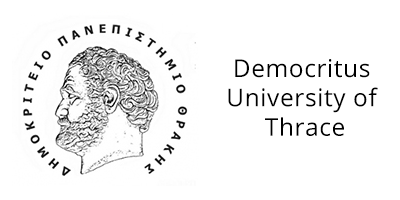Workshop
3rd Workshop on "5G – Putting Intelligence to the Network Edge" (5G-PINE 2018)
Dr. Ioannis P. Chochliouros
Prof. Oriol Sallent
Prof. Jordi Pérez-Romero
Dr. Ioannis Giannoulakis
Prof. Fidel Liberal
Dr. Emmanouil Kafetzakis
Dr. Ioannis Neokosmidis
Motivation
The 3rd 5G-PINE Workshop has been established to disseminate knowledge obtained from actual EU projects as well as from any other action of EU-funded research, in the wider thematic area of "5G Innovative Activities – Putting Intelligence to the Network Edge" and with the aim of focusing on Artifical Intelligence (AI) in modern 5G telecommunications infrastructures.
This should take place by emphasizing upon associated results, methodologies, concepts and/or findings originating from technical reports/deliverables, from related pilot actions and/or any other relevant 5G-based applications, intending to enhance intelligence to the network edges.
Aims to investigate and answer the following
- What are the requirements for the successful "combination" of the three fundamental concepts, i.e. NFV, Small Cells and Edge Computing, towards serving more efficient network management?
- How the above concepts could be correlated to suitable autonomic-cognitive cycles?
- How SON functionalities can properly be integrated in modern 5G infrastructures and how such functionalities can be enhanced through appropriate AI-based tools?
- Which applications/services may benefit most, e.g., Internet of Things and Fog Computing?
- Which may be the new business models that may arise due to the "Intelligence at the network edge"?
- What are the security and privacy implications of placing intelligence at the network edge?
- How to guarantee continuity and quality of service, also within the framework of the wider "quality of experience", while placing intelligence at the network edge?
- Are there any foreseen trade-offs, e.g., low latency vs. increase of intra-domain traffic?
- How to handle the explosion of the traffic and provide the necessary capacity, spectrum?
- How to flexibly accommodate novel classes of services (IoT, M2M, or content-based, and others which are not known today) whilst keeping low CAPEX and OPEX?
- How to develop use cases of interest in verticals and to examine opportunities for growth in the broader telecommunications market.
- How to promote new applications in the fields of network softwarisation and virtualisation.
- How to develop the Small Cell-as-a-Service (ScaaS) context in 5G-oriented scenarios.
- How to propose suitable business models to fulfill expectations originating from 5G.
Topics
Software-Defined Infrastructures
Network function virtualisation advances; Software defined networking (SDN) challenges; SDN-based switch/router architectures; QoS-related aspects; energy-efficiency; Network overlays and federation; QoS-related aspects; Infrastructure and Platform-as-a-Service (IaaS & PaaS), Emerging Software-as-a-Service (ESaaS).
Artificial Intelligence (AI) applications and agents in telecommunications
Service-oriented agent-based architectures, protocols and deployment environments; Multi-agent uses; Algorithms for internet traffic analysis, intrusion detection and anomaly detection; Swarm intelligence and ant colony optimization models; Supervised and unsupervised learning, support vector machines (SVMs).
- Modern Network Management Technologies
"Self-x" properties in modern 5G telecommunications infrastructures; Management architectures and frameworks; Management of resources, services and customer experience; Autonomic network management; Cognitive and self-learning mechanisms; Self-Organising Network (SON) functionalities; Security, trust, and privacy; Energy-efficient networks/infrastructures and power management; Resilience and network reliability.
European Union's policies and regulatory issues, business aspects and related market practices
Techno-Economics for 5G Next-Generation-Networks; Business trends and market requirements; Market 5G ecosystems; New market segments and vertical industries; Cost models and service pricing; 5G Access regulation and migration strategies; Regulatory challenges and assessment of related applied legal measures; Strategic challenges and current European initiatives for research and innovation in the context of 5G; Experimental results from specific research platforms and of related pilots; Societal and environmental aspects of proposed corresponding solutions; Future plans for new use cases, test-beds and local initiatives within the scope of an Internet-based 5G modern society; other Internet-based 5G ecosystems.
Distributed signal processing, grid computing, cloud computing and virtualization
Architectures, resource management and protocols, M2M (machine-to-machine) interaction/SDNs and cloud telematics, brokering, Network Functions Virtualisation (NFV), special cloud computing-based applications emphasizing upon service assurance and critical infrastructure; Smart cities and smart grids.
Internet of the Things (IoT), wireless sensor networks, ubiquitous and pervasive services - Applications and interaction for social networking
Array processing; Future technologies bridging the physical and virtual worlds; Internet-based ecosystems; Internet services and applications, home area networks, smart home, personal area networks; Impacts on the security, privacy and risks on the physical world.
Video-to-video and other multimedia-based communications, IPv6 and mobile networks
IPv6 protocol and next generation networks; HEVC and H.264/MPEG-4 AVC; Multimedia Services and Applications; Mobile TV, multimedia delivery and LTE/Long Term Evolution; Rate-distortion control in heterogeneous networks; Multipoint-to-Multipoint delivery; interactive advertisement; IPTV and IMS; 3D Internet and 3D TV; Immersive multimedia; Enhanced and augmented reality; Virtualization.
Organized by


Sponsored by



